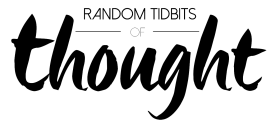Came across an interesting cover story in the December 5 issue of TIME magazine. Titled “The Two Faces of Anxiety,” the article talked about new scientific findings related to anxiety and how anxiety can be a double-edged sword. Below are select quotes that stood out to me, plus some of my own thoughts/experiences.
“That’s not to say all anxiety should be battled. Sometimes it should be embraced – even celebrated. In just the right amounts, the hormones that drive anxiety can be powerful stimulants, arousing the senses to function at their sharpest.”
Anyone who’s felt the rush of adrenaline the night before a big test and the heightened sense of awareness will probably agree with this. The nights I know I’ll be pulling an all-nighter, my body gets nervous, despite the fact that I’ve done it before. I’ll get the butterflies, but a few hours in, I’ll be working at max capacity. It’s a weird feeling, a bit disconcerting, but also exciting when you realize that your mind is in overdrive.
“The peak of that arc – where the systems are clicking, the senses are alert and we recall with perfect clarity everything we’ve learned – is precisely where seasoned performers learn to hop off.”
Interesting. So the article suggests that people can in a sense “game” their body’s response to anxiety. Makes sense, although the key is really knowing your body’s (and mind’s) limits. Does this mean that it’s possible for people to learn this process? I think so. But it will probably take some practice, and I can’t comment on the health effects. People are different and respond differently to anxiety.
“Challenge stress occurs when you feel like you can cope with the situation, that despite its high demands, you have the resources to handle it…with threat stress, you feel less capable of handling the situation, and that can lead to a more unhealthy response.”
So the key here is perspective – more specifically, changing your perspective to approach perceived threat stress and turning them into challenge stress. What I personally find very helpful if I have a ton of work and seemingly nowhere to begin is to mentally break down the tasks into smaller pieces and to develop a plan in tackling them one by one.
“If you perceive you can cope, you will not feel as stressed.”
Yep. Sounds about right. Although it’s important to note that “not feel as stressed” phrasing – it’s not going to disappear, but you’ll be able to respond to it more effectively.
Definitely an interesting article overall, and just what I needed for finals studying. Let’s finish this!
Study breaks for the win at randomtidbitsofthought.wordpress.com.


